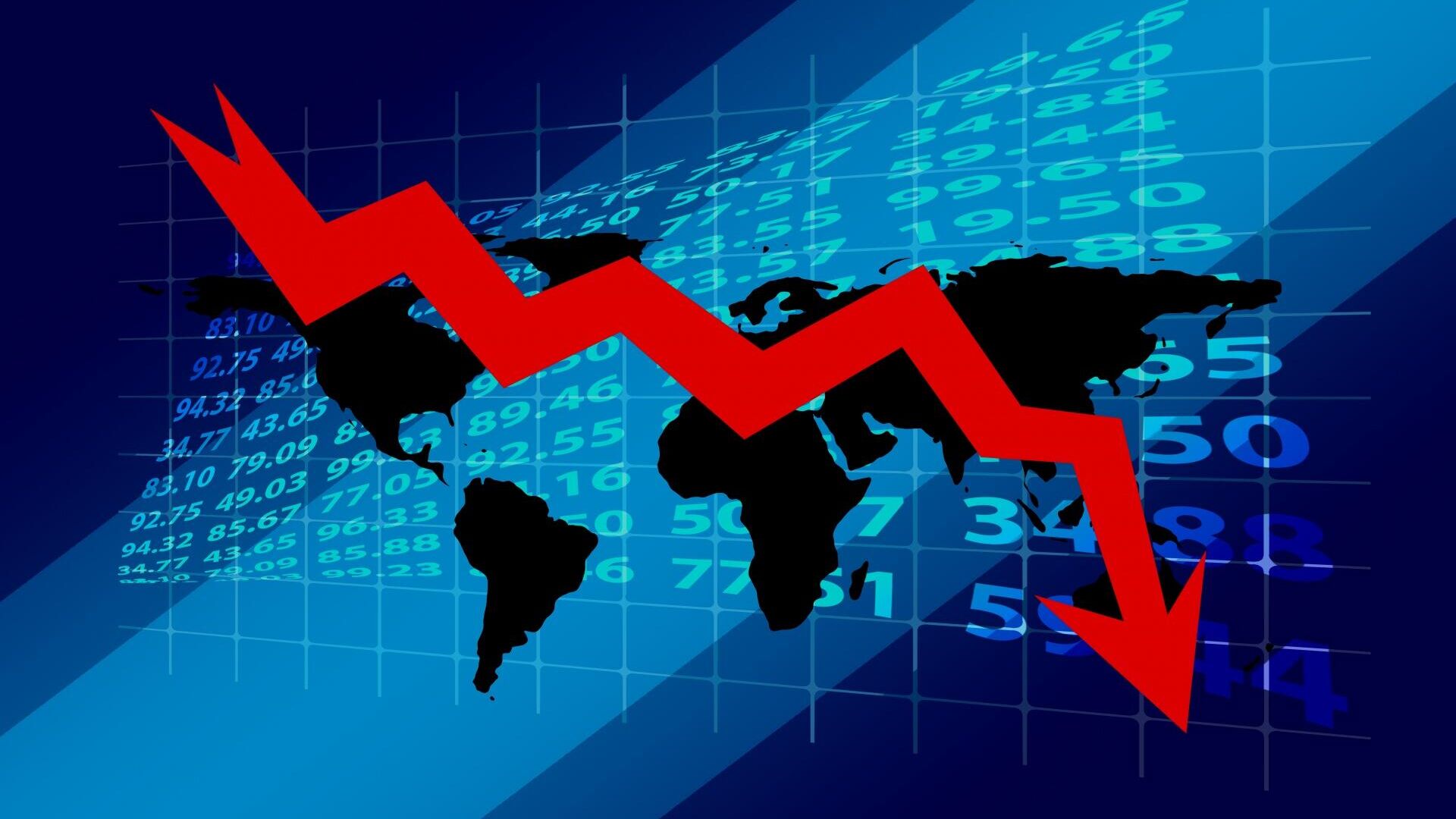https://sputnikglobe.com/20221116/top-economies-face-real-risk-of-recession-wto-warns--1104274311.html
Top Economies Face Real Risk of Recession, WTO Warns
Top Economies Face Real Risk of Recession, WTO Warns
Sputnik International
While developed economies are usually the first to slip into recession, the economic turmoil quickly spreads to emerging markets. A recession may be triggered... 16.11.2022, Sputnik International
2022-11-16T09:39+0000
2022-11-16T09:39+0000
2022-11-16T09:39+0000
economy
wto
recession
emerging markets
global trade
energy crisis
https://cdn1.img.sputnikglobe.com/img/07e6/07/0c/1097217948_0:121:1921:1201_1920x0_80_0_0_feb1ecf83afd7e66bf3b7574d0eb160b.jpg
The world's key economies risk sliding into recession, WTO Director-General Ngozi Okonjo-Iweala said on the sidelines of the G20 leaders' meeting in Bali. She added that emerging markets and poor countries are also at risk since they need external demand for their goods from developed countries.The World Trade Organization forecasts that in 2023, global trade will rise by just 1%. For comparison, this year trade growth is expected to be 3.5%. However, the WTO chief mentioned talks between Chinese leader Xi Jinping and US President Joe Biden as a positive development. The looming recession feared by the major economies has different warning signs that vary from country to country. For instance, Europe is plagued by high energy prices that are the result of anti-Russian sanctions. High prices are likely to squeeze household spending and raise manufacturing costs.Tighter US monetary policy will have an impact on spending in areas where interest rates matter - such as housing, motor vehicles and fixed investments.Previously Ngozi Okonjo-Iweala stressed that the key strategy to overcome global recession is free trade, despite the fact that economic turmoil is often considered as a good time for protectionist measures. She stated that the world economy needs "a deeper, more diversified and less concentrated base for producing goods and services." Ngozi Okonjo-Iweala's comments on the world economy were made on the sidelines of the G20 leaders' meeting. The G20 (Group of 20) is intergovernmental forum that consists of 19 countries and the European Union. This year, the summit took place in Bali and was attended by world political and business leaders.
Sputnik International
feedback@sputniknews.com
+74956456601
MIA „Rossiya Segodnya“
2022
News
en_EN
Sputnik International
feedback@sputniknews.com
+74956456601
MIA „Rossiya Segodnya“
Sputnik International
feedback@sputniknews.com
+74956456601
MIA „Rossiya Segodnya“
wto, recession, free-trade, developed countries, emerging markets, protectionism
wto, recession, free-trade, developed countries, emerging markets, protectionism
Top Economies Face Real Risk of Recession, WTO Warns
While developed economies are usually the first to slip into recession, the economic turmoil quickly spreads to emerging markets. A recession may be triggered by rising food and fuel costs, as well as soaring inflation.
The world's key economies risk sliding into
recession, WTO Director-General Ngozi Okonjo-Iweala said on the sidelines of the G20 leaders' meeting in Bali. She added that emerging markets and poor countries are also at risk since they need external demand for their goods from developed countries.
The
World Trade Organization forecasts that in 2023, global trade will rise by just 1%. For comparison, this year trade growth is expected to be 3.5%. However, the WTO chief mentioned talks between Chinese leader Xi Jinping and US President Joe Biden as a positive development.
“It's always good when the two biggest economies in the world talk to each other,” said the WTO Director-General Ngozi Okonjo-Iweala.
The looming recession feared by the major economies has different warning signs that vary from country to country. For instance, Europe is plagued by high
energy prices that are the result of anti-Russian sanctions. High prices are likely to squeeze household spending and raise manufacturing costs.
Tighter US monetary policy will have an impact on spending in areas where interest rates matter - such as housing, motor vehicles and fixed investments.
Previously Ngozi Okonjo-Iweala stressed that the key strategy to overcome global recession is free trade, despite the fact that economic turmoil is often considered as a good time for protectionist measures.
“While trade restrictions may be a tempting response to the supply vulnerabilities that have been exposed by the shocks of the past two years, a retrenchment of global supply chains would only deepen inflationary pressures, leading to slower economic growth and reduced living standards over time,” Ngozi Okonjo-Iweala said.
She stated that the
world economy needs "a deeper, more diversified and less concentrated base for producing goods and services."
Ngozi Okonjo-Iweala's comments on the world economy were made on the sidelines of the G20 leaders' meeting.
The G20 (Group of 20) is intergovernmental forum that consists of 19 countries and the European Union. This year, the summit took place in Bali and was attended by world political and business leaders.


